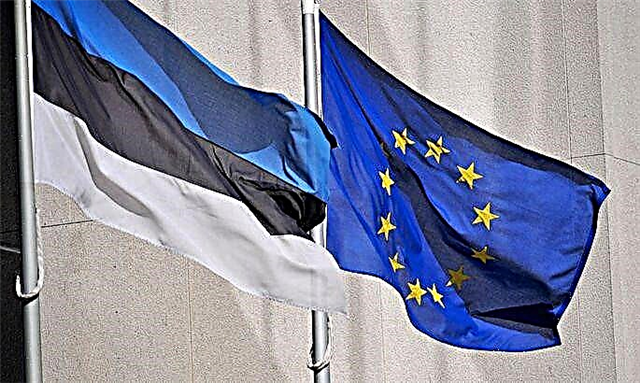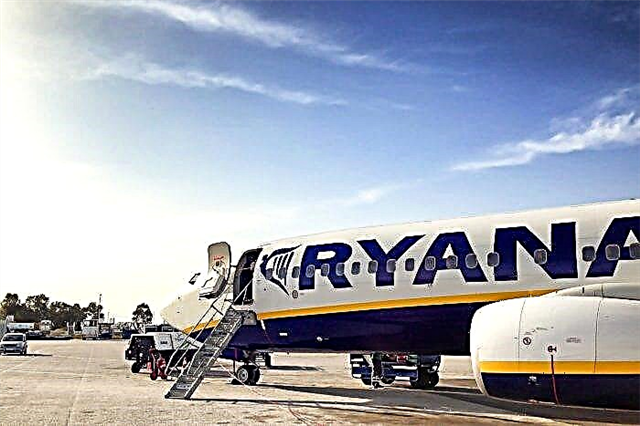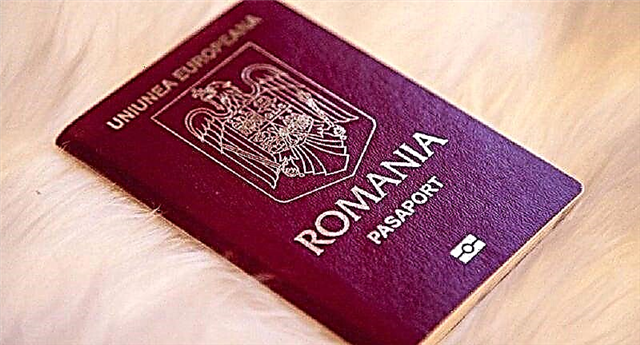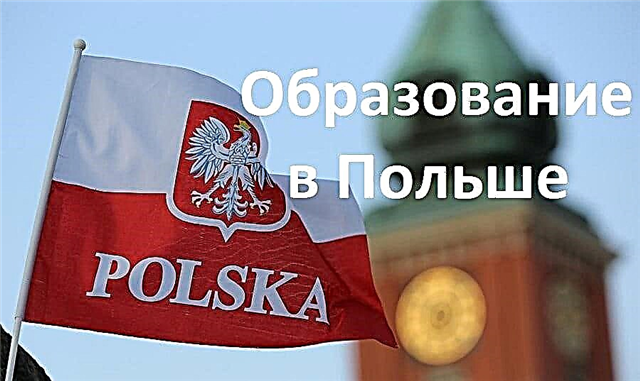Studying in Poland is in great demand among residents of the post-Soviet space.
The benefits of getting higher education in this country
- Integration into the European educational system and participation in the Bologna process, which opens up wide opportunities for participation in student exchange programs;
- International recognition of diplomas from Polish universities;
- Choice of language of instruction: English or Polish;
- Relatively low cost;
- Geographic and linguistic proximity of Poland to other Slavic countries;
- Possibility of admission without exams;
- The possibility of an official part-time job while studying;
- Affordable daily expenses.
Currently in the Republic of Poland there are more than 500 universities, in which about 2 million people are trained. The share of foreign students is relatively small - no more 5%, and the bulk of them are citizens of Ukraine, Belarus and Asian countries.

Reference! The full cycle of education, from the preschool stage to the university, lasts 16-17 years. Poles enter universities after they come of age.
The Polish system is in the middle of the ranking in terms of the prestige of education. In the labor market, IT and construction engineering specialists are more highly valued.
In terms of GDP, Poland is consistently among the thirty largest economies in the world, which opens up broad prospects for employment of graduates of its universities.
Features of higher education in Poland
The age of applicants is not limited. However, in some cases it is necessary that the applicant graduated from school no later than 3 years ago.
In addition to the standard daytime, training is carried out in evening and part-time forms. In the first case, classes are held on weekdays after 4 pm, in the second - 2 times a month on weekends.
Distance learning is available in some Polish educational institutions, however, in this case, you still have to attend some classes in person.
The academic year is divided into 2 semesters of 15 academic weeks: winter starts on October 1 and lasts until February 15, spring - from March 1 to June 30. The total duration of study is 10 months (including examination sessions). Vacation between semesters runs from February 23rd to March 1st, with a long Christmas weekend from December 20th to January 2nd.
Each semester ends with exams, the number of which depends on the university and the year of study. If they are successfully passed, the student proceeds to the next course; if they fail, it is necessary to re-pass the training in this subject with a second exam.
You May Also Like
The rating system in Poland is six-point: from 2 (unsatisfactory) to 5 (highest score). A distinctive feature is the presence of intermediate ratings (3.5 and 4.5).
An important feature of most Polish universities is the use of the "electronic dean's office" system, which allows the student to form a class schedule based on their preferences.

Education programs
Higher education in Poland consists of 2 stages: bachelor's and master's degrees. The duration of the first stage is 3-3.5 years, the second - another 2-2.5 years. Exceptions are technical (the full cycle of education is 4 years), medical, legal and some other specialties. The list and duration of master's studies are established by the Ministry of Science and Higher Education.
According to the form of ownership, universities in Poland are divided into public and private, the number of the latter is significantly higher (70% versus 30%).
Depending on how many doctoral degrees can be awarded by Polish universities, they are divided into the following types:
- Academy: at least 2 disciplines in which a scientific title can be awarded;
- Profile university: 6 directions, 4 of which must correspond to the profile of the university;
- Technical University: 10 disciplines, 6 including technical;
- Classical University: 10 disciplines.
Conditions for admission
Attention! When studying in Polish-language training, a B2 language certificate is required.
After the 9th grade, you can enter lyceums and colleges, and after the 11th grade, the applicant has the right to apply for the first stage of higher education.
It is necessary to pass the entrance exams for the bachelor's degree. If the training is conducted in Polish, the applicant first takes a language exam, and only then can he be admitted to 2 tests in specialized disciplines. The final stage is an interview with the commission. An applicant with a total of at least 80 points is eligible for it.
In some universities, a certificate competition is held instead of exams.
Post-Bachelor's admission has been simplified. Most universities do not require exams, and enrollment is carried out on the basis of educational documents, incl. diplomas of the universities of the CIS countries.
You May Also Like
List of required documents
When applying for a bachelor's degree, a Russian, Ukrainian, Kazakhstani or Belarusian must provide the following documents:
- Apostilled certificate and translation (their photocopies);
- Medical certificate and translation (their photocopies);
- Certificate of the required level of the Polish language;
- Application for admission to an educational institution;
- Applicant's questionnaire;
- Photos, photocopy of passport, visa and insurance;
- Pole's card (if available).
When entering the magistracy, in addition to the above documents, you must have a diploma with an apostille, an appendix to it and their photocopies. In some cases, the consent of the university for training is required.
Reference! The list of documents may vary, therefore it is recommended to clarify it in each specific case.
Upon successful passing of the exams, the embassy issues a student visa for a year, which is extended if the studies are continued.
Cost of education
It varies widely depending on the chosen specialty and form of ownership. The cost of an annual study at a private university starts from 800 €, state - from 1000 €... In demanded faculties, it can reach up to 5000 € and higher (energy, nanoengineering, medicine). With Polish-language training, the cost is reduced by 200-300 €.

Free education opportunity
Universities in Poland offer free tuition to Russians, Ukrainians and Belarusians with documentary evidence of their Polish origin.
Some provide the opportunity to study at the expense of the budget for Russian-speaking citizens with the help of scholarships and grants (the Kosciuszko Foundation, Banach). Some of them also cover living expenses. The main disadvantage of these scholarships is that usually only students studying in Polish can apply for them.
With significant success in academic or sports life, as well as in case of a difficult financial situation, a foreign student can receive an appropriate scholarship.
Internship and exchange studies
In the process of studying at the university of his country or after graduation, a student can apply for participation in an internship or exchange programs:
- Gaude Polonia: for young linguists;
- Queen Jadwiga Foundation Grant;
- Civil Society Leadership Awards Scholarship;
- John Paul II Foundation Scholarship.
Their duration ranges from several weeks to 1-2 years and often covers not only the cost of education, but also living with a scholarship.
Accommodation and meals for students
Public universities provide a hostel with a monthly fee of 80-120 €. In private universities, it is slightly higher. If there are not enough places, a student can stand in line for some time and rent a room in a private hostel or a rented apartment. The monthly fee for 1-room apartments in major Polish cities starts from 250-300 €.
A number of grants fully cover the cost of living.
Students' meals are organized, as a rule, at their own expense. Student canteens offer budget lunches up to 3-4 €, and the total monthly expenses for it are on average 150-250 €.
Top universities in the country
The Perspektywy Academic Rankings ranked the country's top universities in 2021 as follows:
- University of Warsaw (Uniwersytet Warszawski). For more than 200 years of history, 5 of its graduates have been awarded the Nobel Prize. Now almost 50 thousand people study here in 20 faculties.
- Jagiellonian University (Uniwersytet Jagielloński). The oldest Polish university. Founded in the middle of the XIV century in Krakow. Part of the Utrecht University Network. The academic community numbers 50 thousand people studying and working in 15 faculties. Collegium Medicum unites 3 medical faculties.
- Warsaw Polytechnic University (Politechnika Warszawska). Every year, 27 faculties graduate 5,000 young specialists, and the number of students reaches 30 thousand. The leading technical institute in Poland with the highest competition.
- University named after Adam Mickiewicz, Poznan (Uniwersytet im. Adama Mickiewicza). The main focus is socio-humanitarian and natural science disciplines. Consists of 15 faculties, and the number of students reaches 40 thousand.
- Mining and Metallurgical Academy named after Stanislaw Staszica, Krakow (Akademia Górniczo-Hutnicza im. Stanisława Staszica). The largest technical university, which provides training in 200 specialties at 15 faculties. One of the best engineering universities in the country.

Reference! The best universities in the country also include the Polytechnic University in Wroclaw, the University. Nicolaus Copernicus in Torun, Medical University of Gdansk.
Reviews
Dmitry: It's easy to combine studies with a part-time job. As an international student, I am allowed to work 6 months during the academic year and 3 months during the summer vacation. The dormitory fee is moderate (400 PLN), but the conditions are good: a room for 2 people.
Yana: Thanks to the Erasmus program, during my studies, I managed to go to a German university for an exchange for several months. I graduated from a bachelor's degree, now I am studying for a master's degree and already working in my specialty.
A Polish diploma of higher education for residents of the CIS countries opens up broad prospects in the labor market not only in their own country, but also in Poland and other Western European countries.











